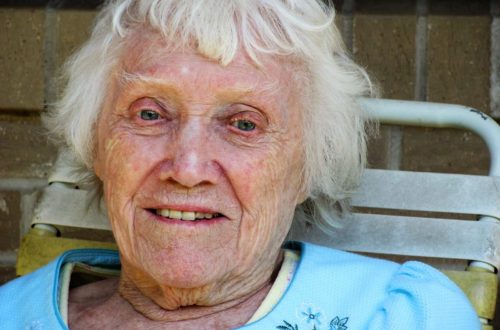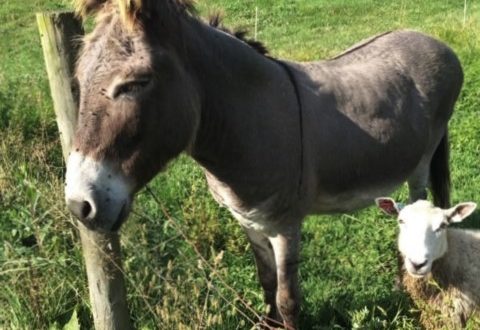
Hibernate in Body and Mind
Many of my friends who are retiring, talk of moving west or south to be warmer in winter. What about hibernation in winter? Would hibernation help people get through long winters or would it make it worse? Hibernation works very well for certain animals – bears, squirrels, bats and other mammals. I can see a very large and comfy squirrel nest in my pine tree.
Animals hibernate in the winter to conserve energy and because there isn’t enough food readily available. Frogs hibernate in the water they live in. They have a fluid in their bodies that acts like antifreeze. Ice crystals form in such places as the body cavity and bladder and under the skin, but a high concentration of glucose in the frog’s vital organs prevents freezing. A frog’s breathing will slow down to just barely breathing and it will seem dead. Don’t be fooled it is alive. In springtime you will see it there in the pond.
If you think frogs are amazingly able to stand the cold just think of the black bears and northern brown bears. With only a bit of lowering their body temperature, torpor sets in and they are fast asleep for months. Their bodily functions shut down and their nitrogen is recycled from their waste products. Now here’s the truly marvelous moment. Months later they awaken without having moved all winter during hibernation and their bones and muscles are still in functioning condition.
What is wrong with humans and hibernation? Scientists say that perhaps humans are not built to slow down the body enough to truly hibernate. The hibernator [animal] has evolved so that all the enzymes and biochemical systems are adapted to run at low temperature. However, scientists are experimenting with a type of medical hypothermia for traumatic brain injuries and other injuries.
We now sit in a type of forced hibernation with brief periods of walking, biking when it is warmer, eating outdoors around a campfire. How can we sustain this? Here are some ideas:
Take up a spiritual practice: meditation and prayer are not escapes, but a type of healthy hibernation. It has been found that meditation is not only good for the spirit, but also for the body.
Read. Simply sit in a bright warm spot in your house and read. No technology unless you read with a kindle.
Listen to music. It will lift your spirit and you will forget about the cold. Here is Ralph Vaughn Williams, Five Variants of Dives and Lazarus. This is a ballad embraced by many faiths. It is the parable of Dives (Latin for rich and splendid) and Lazarus, a poor beggar.





4 Comments
Viola Day Mullin
Thank you, Linda, for another lovely essay/meditation. In the past several years (must be part of aging) I am very conscious of the waning of daylight hours in the autumn and the desire to eat (as if to prepare for hibernation). I played the Vaughan Williams selection you offered as I was watering my plants and closing the shades at sunset. What a comforting piece of music! I’ve heard it a number of times, but what a perfect piece to attach to your essay. Thanks very much! Viola
lstormes@yahoo.com
Viola, I am glad you enjoyed it. It is interesting about the comfort of eating as we approach cold weather. You are not alone. I feel that as well and I also feed some cats in the park and they have been bulking up in fat and fur preparing for winter. Yes, the Vaughan Williams struck me as a perfect way to begin a meditation on winter with strings and harp. Warmest wishes, Linda
Susanne Meyer-Fitzsimmons
It’s all a big dilemma how to live in sync with the natural world while having the other foot in this world that never sleeps, or hibernates for that matter. We can indeed slow down and go inward in the winter, which I find very comforting. But then I come from Northern Europe. Are Southerners less in tune with the idea of slowing down in the winter when there is no winter and the temperatures don’t force us indoors?
Linda
Good question about the south. I believe they are getting colder weather now, so it will be interesting how life changes for them.